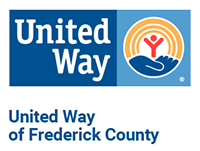It recently provided its 10,00th ride.

Frederick, Md (KM) The Ride United Network, which provides free or discounted rides to those who are less well off, has reached a milestone. Ken Oldham, the President and CEO of the United Way of Frederick County, says the network has provided over 10,000 rides to the community.
The Ride United Network began in March, 2023. “We’re absolutely delighted to reach our 10,000th ride in just a few months. Using those rides to get our ALICE families–our critical ALICE families in the communities–getting them to work, their health care appointments and to so many of the necessary activities,” he says.
ALICE stands for Asset Limited, Income Constrained, Employed. It’s another name the United Way uses to describe the working poor.
Ride United Network consists of a commercially available ride-share program, and several non-profit organizations which provide these transportation services.
Oldham says transportation is one of the biggest obstacles for persons who are less well off and want to improve their lot in life. “Transportation, we have found, is the single most significant part of access to services, ” he says.
In the fall of 2021, the United Way developed a Ride United pilot program which provided more than 4,200 rides to individuals and families who were less well. Oldham says data was collected during that time to determine if there were any gaps in service. “That particular program did not serve senior citizens as well as what it should. It didn’t serve youth as well as it should. And it didn’t serve rural communities outside of the cities of Frederick, Ballenger Creek and Walkersville as well as it should. It didn’t serve Hispanic households as well as it should,”: he said.
Next year, Oldham said a program will be launched to provide rides for people in rural areas who don’t have access to reliable transportation. “Volunteer based ride share program will available in Frederick County thanks to a local non-profit called SOS Safe Ride Foundation. They’re launching a volunteer ride-share program to specifically serve our more rural communities,” Oldham says.
Even though many ALICE household need transportation to get to medical appointments, education, to obtain food and other important needs, Oldham says it’s just as important for these individuals to have transportation to get to their jobs. He says having access to transportation can make a big difference when it comes to getting to work, and taking an offer of a better job. “If we can’t get our employees to work, then our economy is going to suffer,” he says. “In an ALICE household, that mode of transportation to get to work is the difference between a lower paying job and a higher paying job.”
Oldham says that person may turn down an offer of a higher paying job because that individual may not have transportation to get to and from that new position.
By Kevin McManus